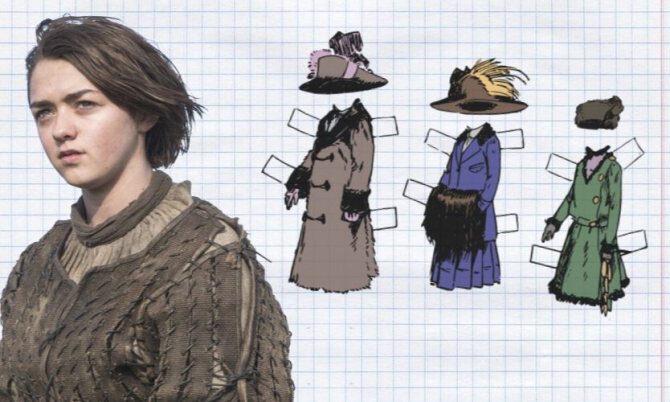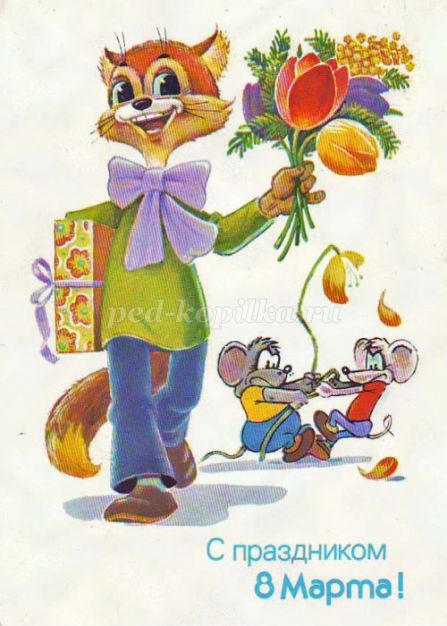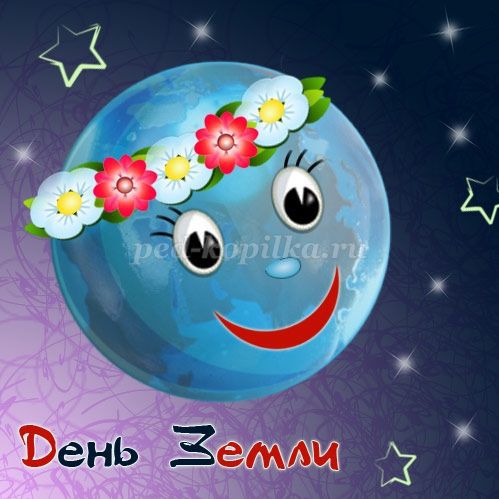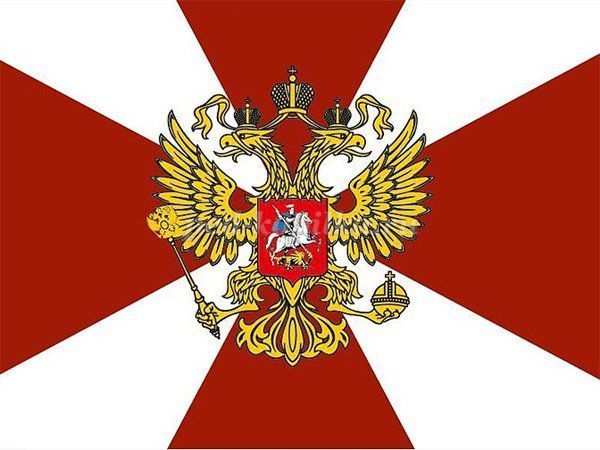“Organization of holidays for preschool children in accordance with the Federal State Educational Standard for Education”
A game
at a children's party acts, on the one hand, as a method of activating the child, on the other hand, as an important form of mastering cultural forms of behavior. Collective games are characterized by eventfulness, plot, action, and imagery. Emotions “cement” the game, make it exciting, and create a favorable climate for communication. It is important to captivate children and make sure that the end of the game is not drawn out, but is characterized by brightness, emotional richness, and effectiveness.
Entertainment
Entertainment, as one of the types of cultural and leisure activities, is of a compensatory nature, compensating for the costs of everyday life and monotony of the environment. Entertainment should always be a colorful moment in the lives of children, enriching impressions and developing creative activity.
When organizing entertainment of the first type in order to activate children, they are involved in the design of the hall or group; production of attributes or invitation cards. In this type of event, the cultural and leisure activities of preschoolers are somewhat limited: they are mainly spectators, and receive a positive emotional mood in the process of perception.
Types of entertainment according to the degree of activity of children's participation
children are only listeners or spectators
children are direct participants
participants – adults and children.
The second type of entertainment makes it possible to include children more widely in the process of preparation and performance. They themselves prepare numbers for performances, stage performances, act out roles, and take an active part in various games. This type of entertainment allows the teacher to find something to do for each child, which has a positive effect on the formation of the foundations of an individual’s culture.
The third type is mixed. It allows children to expand their communication with adults and peers, which is so necessary for the overall development of preschoolers. Involving parents in this section of the teacher’s cultural and leisure activities is a good way for the kindergarten to work with the family.
Such events are usually held in the afternoon. In this case, the teacher must take into account the time of year. Once a week it is advisable to hold a longer (30–35 min) entertainment event with a greater emotional load, and on other days offer short (5–10 min) fun activities: small surprises, jokes, jokes, nursery rhymes, riddles, shows tricks and improvisational scenes from the life of a kindergarten or based on literary works.
Parental Involvement
Preschool childhood is a favorable period for introducing children to the origins of musical culture. Experience shows that parents are interested in the in-depth musical development of the child and are ready to participate in joint activities in kindergarten. The main task of children's musical development is the formation of the foundations of musical culture, the moral and aesthetic development of the personality of a preschooler. Her solution is aimed at the joint organization of musical activities of children, teachers, music director and parents. Through joint efforts, this process is carried out more successfully; the union of like-minded adults allows us to achieve the best results in the musical development of children.
Just some kind of holiday: 12 November dates that can be fun to celebrate with children
November 2
Circle Search Day One
can only guess about the origin of this occasion for fun, but its essence is fully reflected in the name. It seems that this is a very convenient holiday for adults - there is no need to make major adjustments to the usual daily routine, and you can regulate the degree of your own involvement in the celebration process.
How exactly is Circle Search Day celebrated? There is no specific tradition at the moment, and this allows you to freely create your own. You have a starting point (search for circles): you come up with tasks yourself and choose whether only the child performs them, or whether participation in the activity extends to the whole family. For example, you can start the day by choosing clothes with circular elements or a similar print. Continue by searching for all the round objects in the kitchen while preparing breakfast: name them one by one and try not to repeat yourself. A similar task on attentiveness and memory can be used to dilute any boring task that does not require concentration - for example, cleaning or shopping. In the store, by the way, you can give your child a special task: find the roundest oatmeal cookie! Then on the way back you can celebrate Feeding the Birds Day with oatmeal cookies, which is also celebrated on November 2. Well, you can end the evening with a bath with fluffy foam and soap bubbles.
November 4
Tutankhamun Day
The reason for this holiday appeared in 1922, when the British archaeologist Howard Carter, while excavating in Egypt, discovered the famous tomb of Tutankhamun. The first traces of the burial were noticed on November 4, but for another three weeks the archaeologist could only guess how lucky he was. The tomb was opened on the 26th: inside were more than three and a half thousand amazingly preserved artifacts - jewelry, fabrics, painted vases, funeral masks and much more. The pharaoh's mummy rested in three sarcophagi and four arks - of course, lavishly decorated with precious stones and gilding. Well, the most important find was the now famous death mask of Tutankhamun, made of pure gold.

Golden mask of Tutankhamun
Tutankhamun's Day is a wonderful occasion to introduce your child to the history of Ancient Egypt. It will be interesting for kids to watch the thematic series “Smeshariki” and make a cardboard pyramid.
For older children, look through an age-appropriate book with their parents and go to the Pushkin Museum, to the hall of art of Ancient Egypt: by the way, you can “walk” through the hall online on the museum’s website. Schoolchildren can be captivated by some documentary film about Ancient Egypt, and the whole family can listen to lectures on its history on Radio Arzamas. Well, children of any age, from one to one hundred, will certainly enjoy playing with mummies. Wrapping yourself in toilet paper and scaring each other is a lot of fun!
You can take apart the equipment of black archaeologists (such as Lara Croft and Indiana Jones) together.
or watch our selection of films about archaeologists
November 6
Saxophone Day

Who exactly and in what year first decided to declare November 6 as Saxophone Day is unknown. We only know that on this day in 1814 Adolphe Sax was born, who invented this instrument in the 40s of the 19th century. The musical community reacted to the new product with interest, but real popularity came to it already in the 20th century with the rise of jazz - and today, when we talk about the saxophone, we think of it first of all as a typically jazz instrument.
Celebrating the holiday by listening to jazz seems to be the easiest and most enjoyable way. We recommend including Summertime performed by Charlie Parker, Blue Train by John Coltrane, Mean to Me by Lester Young - absolute classics of this genre. Well, if your child is studying saxophone at a music school, then you have the most compelling reason to throw a real party with improvisations on November 6!
November 12
Titmouse's day
Although Sinichka Day began to be officially celebrated quite recently, the roots of the holiday go back several centuries. Our ancestors believed that it was on November 12 that wintering birds fly to cities and villages: on this day, adults hung up feeders, and children poured crumbs and seeds into them. Places for feeders were chosen as close to the house as possible, because tits were considered “messengers of happiness.” And it was also easier to watch them this way, because there were many signs associated with these birds: “A tit screams in the morning - a frosty night, whistles in the evening - a clear day”, “A tit squeaks and huddles close to the house - a frost”, “Many tits” at the feeders - to a blizzard and snowfall” and so on.

Some of the traditions have been preserved to this day. On November 12, it is still customary for the whole family to get together to make a feeder (from wood, a plastic bottle, a milk carton), hang it on any convenient tree and leave some food in it for the tits. You can agree with your child on mandatory daily inspection of the feeder - this is a pleasant, useful and important duty, because the birds quickly get used to the “bread spots”. By the way, ornithologists call raw sunflower seeds and unsalted lard the best treat for birds!
Tit in hand: where to watch birds in Moscow
The capital is home to more than 200 species of birds - some live in the city permanently, others come for the summer. Time Out has collected 7 places in Moscow and the Moscow region where you can watch birds.
Read the article

the 13th of November
World Kindness Day
This year, the most touching holiday in the world will celebrate its anniversary - it will be twenty years old. It was established at the third conference of the World Kindness Movement, which was held in Singapore in November 2000. Supporters of this movement see their task as inspiring other people to do good deeds and thereby contribute to improving life around the world.

Celebrating Kindness Day is very simple - giving flowers to friends and strangers. By the way, in Soviet times, it was about this ritual of spontaneous giving of flowers and the absolute joy that accompanies it that the wonderful cartoon “Just Like That” was filmed. We recommend watching it with the whole family to be inspired to do good deeds!
In fact, there are an endless number of options for celebrating Kindness Day - they are limited only by your imagination and your understanding of kindness. Feed street cats, put an extra handful of sunflower seeds in the feeder that you hung up the day before, decide to adopt a puppy from the shelter that a child has been asking for for so long, send money to charity, leave “hanging coffee” at your favorite coffee shop... The main thing is that you show your child a good example. By your actions, you motivate him to do good deeds and thereby make the world a little warmer.
Time Out, together with Moscow shelters for homeless animals, publishes weekly selections of cats and dogs that are looking for homes right now. You can choose a new friend for your child in one of the “In Good Hands” materials in the Time Out Pets section.
Funds for helping children and adolescents

Funds: helping adults and animals

November 16
World Button Day
Button Day was invented by the American organization National Button Society in the mid-20th century to the delight of collectors of this item of clothing, and also so that everyone could once again rejoice at the very fact of the existence of such convenient accessories.

A button is a unique element that can be not only a fastener, but also a decoration, a talisman, and an identification mark. It is interesting that, although civilization has known this accessory for about 5,000 years, the first functional buttons with a loop for fastening appeared only in the 13th century.
Button Day seems designed to be celebrated in a meaningful way. You can ask kids to sort a handful of buttons by color or size - and then make an applique out of them. You can count the buttons on your dad's favorite shirt. A challenge for an older child is to learn how to sew on a button with two holes and play in a hospital for soft toys: sew on a button eye for each one in need.
Multi-season costume: about the wardrobe of popular characters
Time Out meticulously studies and analyzes the outfits and accessories (yes, weapons are also an accessory!) of popular characters from films, TV series and games, finding out what details of their images can be translated into real life.
Read the article

November 17
Black Cats Day
This annual Italian holiday, it seems, could take root in our country, because the main reason for its appearance is superstition. Our ancestors were sure that black cats bring bad luck, and today many continue to think so - probably out of inertia. Statistics show that cats of “unlucky” color are reluctantly adopted from shelters, and they are almost more likely than other relatives to get into trouble (often they are “helped” in this by superstitious people). In a word, black fur really brings trouble – to the cats themselves.

On this day, it’s great to discuss with your child what superstitions are, where they come from and why they can be more harmful than useful - at least those that concern black cats. And if there is a cat living in the basement of your or a neighboring house, you can treat it with a bag of meat food - and, perhaps, in this case the color of the animal’s fur is not important. Also, Black Cats Day is a wonderful occasion to tell your child about charity and together transfer a comfortable amount to a shelter for homeless animals.
And, of course, there’s no place without games. In the 41st episode of the animated series “Three Cats,” the characters say this: dad hid the toy and gave the kittens a task - following the clues, find it strictly before 18:00 in order to “catch luck by the tail.” This story will probably inspire you to organize a similar quest for your child - with tasks of varying degrees of difficulty and a plush black cat as a reward.
From the shelter - it's cool: happy stories of animals who found a home
November 18th
Santa Claus's birthday
Although Santa Claus has been known as an obligatory character of the New Year holiday since the late 30s of the 20th century, his birthday began to be celebrated only in 2005. November 18 was not chosen by chance: it is believed that it is on this day that real winter comes to Veliky Ustyug, where Father Frost now lives.

Still from the cartoon “Santa Claus and Summer”
How old will Santa Claus be in 2022? No one knows this for sure; they say that the birthday boy himself no longer remembers his age.
However, if your child still wants to get an answer to this question, he can ask it to Santa Claus in a congratulatory letter. Rumor has it that the busy birthday boy loves it when in such letters the children also talk about the gifts they would like to find under the tree.
Operation “Santa Claus”: how to order Santa Claus to your home and not go wrong
November 21
World Greetings Day
Greetings Day was conceived in 1973 by two Americans, Michael and Brian McComack, in response to the conflict between Egypt and Israel. The brothers decided to speak out against the increase in international tension, and they chose kindness as a tool of struggle. They sent letters with heartfelt greetings to all corners of the world, and asked the recipients to do the same - send a dozen similar messages to someone else. A kind of “letters of happiness” offline, only without the religious and mystical component. As conceived by the authors of the action, the chains of greeting letters were supposed to draw public attention to how important personal communication is for maintaining peace throughout the world. Then the idea was supported in more than 180 countries, and the holiday became an annual event.

For a child just starting to learn etiquette, World Hello Day can be a meaningful opportunity to say hello to others all day long. Children who have already mastered this science can be told about the proverb “a kind word is nice to a cat” - and invite them to say hello not only to people, but also to birds, cats, and dogs. School-age children who have already acquired accounts in instant messengers can launch a “good flash mob” - send their friends congratulations on Greetings Day and an invitation to share this message with, say, five close people. This idea will certainly be warmly supported!
The 50 Best Children's Movies of All Time
How to raise a film fan? For starters, we need to accustom young viewers to quality family films. Time Out offers its selection of the 50 best films for children and teenagers to help you.
Read the article

November 22
Day of the Absurd
Absurdity refers to everything that is illogical, ridiculous, and contrary to common sense. The philosophy of the absurd became so popular in the first half of the 20th century that it seems to have permeated all areas of our lives: even the joke “The Day of the Absurd is my professional holiday” today sounds somehow unironic.

Still from the cartoon “Harmonium” - the image of Daniil Kharms, 2009
A holiday of the absurd can be a great opportunity to have fun and get out of your comfort zone. Consider it an indulgence to be as weird as you want. You can start, say, with clothes. Invite your child to become your stylist on this day: let him pick out a look for you to wear when you go on errands (to work, taking your child to kindergarten or school, to the store - it doesn’t matter). And let him feel free to combine any colors, prints and textures! To the surprised questions of your colleagues and acquaintances, answer honestly that you are conducting a festive experiment on the occasion of the Day of the Absurd.
In the evening, it will be very useful to remember the good old game “Who is it” and have fun with the whole family: the essence of it is that each participant draws the head and neck of any living creature on his own sheet of paper, wraps the sheet so that no one sees his part of the drawing, and passes it on to a neighbor. The second step is to draw the body, and the third step is to draw the legs. Since there are no restrictions or agreements in the game, these composite drawings usually turn out to be very funny. And let us remind you about the domestic genius of the absurd, Daniil Ivanovich Kharms: reading his poems before going to bed seems to be the best way to end this boring day.
About teenage hobbies that many parents consider absurd:
It would be better if I did my homework: 5 hobbies that are difficult for parents to accept
November 28
Red Planet Day
On November 28, 1964, the automatic station Mariner 4 was launched, which made the first successful flight near Mars in human history. Then the station managed to approach the Red Planet at a distance of about 10 kilometers, photograph it and transmit the images to Earth. Today, when rovers roam the surface of the fourth planet from the Sun, and the first expedition with the participation of people seems to be just around the corner, photographs will not surprise anyone - but then it was an absolute breakthrough.

Photo: wikimedia
Red Planet Day is a holiday that is great to celebrate by receiving new useful information. This year, November 28 falls on a Saturday, so the option of a family trip to the planetarium seems quite realistic, at least at the time of publication of this material. If you prefer self-isolation, you can invite your child to look through books about space and study an online star map.
You can dilute the serious atmosphere with the task of drawing a Martian (and then organizing a real intergalactic exhibition!), and a cheerful group game of aliens from Mars (obligatory - inventing alien costumes, holding the Martian Olympics and eating space dinner).
“The Martian” and others: About love, friendship, science and self-esteem: what modern films and cartoons teach
November 30th
World Pet Day
The idea of regularly holding Pet Day was voiced in 1931 at the International Congress of Conservationists in Florence. In Russia, people first started talking about this holiday in 2000: it’s a case when it’s better late than never. The purpose of creating Pet Day is to instill in people a sense of responsibility for their pets and support shelters.

Still from the film “The Way Home: The Incredible Journey”
On November 30, many foundations and animal rights activists hold various events, and owners treat their pets to something special, talk about them on social networks and allow them to do everything that is usually prohibited (sharpening their claws on the carpet, sleeping on the table, playing with pencils and maybe even chew on slippers). If, say, you have a dog at home, delegate to your child the choice of holiday treats at the pet store and agree to pat the pet on the head at least once an hour.
Haven't decided to get a pet yet? But you can still celebrate Pet Day. For example, family viewing of a themed film. Here are three options for the coming November 30: “Beethoven”, “The Way Home: An Incredible Journey”, “Babe: The Four-Legged Baby” - a nostalgic pleasure for now adults and a seemingly new movie for today's children.
And if you already have a pet, you can arrange a festive family “outing”:
tips for owners and 10 dog-friendly places for every taste
Holiday calendar for March
March holidays
Holidays in March
Description of the material: We present to your attention a calendar of holidays for every day of the month. Prepared by the teacher of the MBDOU MO Plavsky district-kindergarten in the village of Molochnye Dvory Gigireva E.V.









On March 7, Russia celebrates the Day of Internal Troops of the Ministry of Internal Affairs of the Russian Federation. In honor of the services of the internal troops of the Ministry of Internal Affairs of Russia to the Fatherland, the Day of the Internal Troops of the Russian Federation was established in 1996 by Decree of the President of the Russian Federation. According to historical tradition, it is celebrated on March 27. Until the beginning of the 19th century, there were no special armed formations in Russia that monitored public order, ensured the safety of the population, and provided assistance in case of natural disasters. In the 16th-17th centuries, some of these functions were performed by units of the Streltsy army. And under Ivan the Terrible, in order to “protect the peace and tranquility of Moscow,” the institution of the so-called “tenants” was introduced - an army consisting of serving nobles, which later began to be considered the prototype of the internal troops. Under Peter I, internal security in the state was ensured by garrison and (or) internal battalions, which were formed from soldiers incapable of field service and served as a reserve for field troops. On March 27, 1811, Emperor Alexander I signed a decree on the formation of internal guard battalions in Russian cities. Almost two centuries have passed since then, but these units still continue to carry out the most important tasks to preserve the territorial integrity of the country, actively participate in maintaining public order, protecting especially important government facilities and cargo, and combating crime, terrorism and extremism. In Soviet times, the internal troops were reorganized more than once, the department that controlled them changed their names: GPU, OGPU, NKVD, MGB, MVD. But the soldiers always continued to carry out their usual service: during the civil war, and during the incidents on Lake Khasan and the Khalkhin Gol River, and in the Soviet-Finnish war, and, of course, in the Great Patriotic War. In peacetime, military personnel of the internal troops perform the most important tasks to preserve the territorial integrity of the country, actively participate in maintaining public order, protecting especially important government facilities and cargo, and combating crime, terrorism and extremism.
We recommend watching:
Holiday calendar for April Holiday calendar for May Poems about spring for children 7-12 years old Poems about spring for children 6-12 years old
Similar articles:
Spring coloring pages
Scenario for a spring holiday in kindergarten
1st of May. Scenario for kindergarten
Spring holidays in kindergarten. Scenarios
Scenario of the spring holiday for the preparatory group of kindergarten






